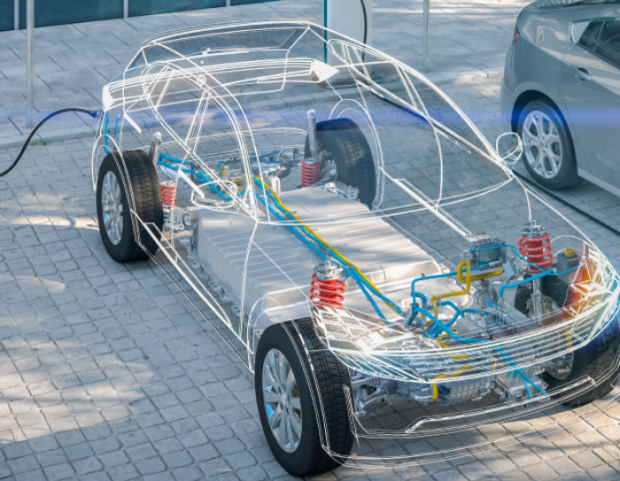South Korea will step up policy efforts to promote battery recycling, which might help the country get around the new US bill aimed at keeping electric vehicle battery makers from using materials sourced from its unfriendly trading partners such as China.
The government is drawing up a package of measures, including financial aid for the reuse of batteries and policy support for research and development of the relevant technology, according to government officials on Friday.
It is aiming to introduce the relevant law in the first half of next year, led by the Ministry of Trade, Industry and Energy and the Ministry of Economy and Finance.
Particularly, the upcoming measures will make it mandatory for battery makers to use certain portions of minerals such as nickel, cobalt and copper extracted from waste batteries.
That means that EVs powered by made-in-Korea recycled batteries would be eligible for the US tax credits to be granted to EVs, even though the batteries they recycle contain Chinese minerals.
South Korean battery makers are heavily reliant on Chinese raw materials such as graphite, manganese, lithium and cobalt, key ingredients of EV batteries.
US President Biden signed the Inflation Reduction Act into law last month. The bill includes a $7,500 tax credit for EVs using portions of critical battery materials not extracted, processed and recycled by a foreign entity of concern.
To qualify for the credits, EV companies must source at least half of their battery components in the US or its foreign trade partners, including South Korea, starting in 2024. The proportion will increase to 40% by 2023 and 80% by 2027.
To facilitate battery recycling, South Korea recently loosened regulations on the collection and disposal of used batteries. Under the revised rules, scrap batteries are now classified as recyclable resources, instead of waste materials.
The European Union is preparing new laws concerning the recycling of cobalt, lithium and nickel extracted from waste batteries, which South Korea is considering benchmarking.
But Seoul may not adopt strict guidelines for now, considering its relatively low penetration of EVs and uncertainty regarding its economic benefits.
Separate from the policy moves, South Korea’s EV battery makers and automobile companies will take voluntary efforts to collect and recycle waste batteries in coordination with the government.
To that end, LG Energy Solution Ltd., Samsung SDI Co. and Hyundai Motor Co. will participate in a so-called “battery alliance” to be launched next month, alongside other domestic manufacturers.
Write to Zi-Hoon Lee and Hyung-Kyu Kim at
lizi@hankyung.comYeonhee Kim edited this article.







